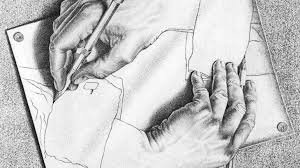Oh I hadn’t even thought about the music charts or scores. They are all written for right handed people. You left handers really had it rough for a lot of things since the majority rules.
Then again, the very reason you tried extra hard was probably mostly due to being left handed. It was quite an accomplishment but you became an accomplished musician.
Most of my playing I had done by learning how to read music etc. I can site read fairly well but nothing compares to being able to pick a song you like and play it in the key you want as opposed to the key it’s written in. It’s totally priceless.
Excellent! I taught myself to read music and see it as another tool among many. I learned to play by ear initially since there were no books containing the music I wanted to play. That is very typical of those who learned during that time.
Another skill is called "reading charts". Pardon me if you already know this...
A "chart" is also known as a "lead sheet". A lead sheet consists of just the melody line in standard notation and chord symbols such as "C ma7" or "G7" written above it at the appropriate places to play those chords. It is your job to translate this into music by knowing a library of chord forms along with the ability to read the melody line.
The skills needed outside the classical world usually involve being able to play by ear, which involves being able to hear what is going on and respond with appropriate chords and leads that come out of the scales you would also have learned all over the fretboard. Sometimes, you might be called on to read, but in my experience, that usually happened during the audition rather than the gig as a way of weeding out people. For these things I am not talking about a rock band playing college bar gigs as a "weekend warrior", but instead a pro full time working band playing supper clubs, resorts, and such where the money is for steady employment back when that was still possible. Also, for studio work which I have done too. Most of this work that I am talking about used to be union, but I don't know what the market is like these days. I was in the American Federation of Musicians for the work I did.
My theory (I don't know this to contain any actual truth...), is that when first learning to play guitar, it will feel weird no matter which way one learns. Therefore, it would seem to me that left handers would want to go through the initial weirdness playing right handed. However, the few people I know who play left handed have told me with absolute certainty that this assumption on my part isn't true, that some people are so left handed, that any attempt to do anything the way right handed people do, simply won't work. All I can say is that I am really glad I am not one of those.
The good thing about playing by ear is that the skill required is called "relative pitch". This is very different from "perfect pitch". With perfect pitch, you could play a note and the person with perfect pitch can tell you what that note is, or possibly play a chord and that person could tell you what the chord is and what notes are in it. Relative pitch is being able to hear a note and match it with your voice and/or your instrument.
You learn using relative pitch by listening to a recorded passage over and over, matching the notes you hear to those on your instrument. There are all manner of tricks to help such as knowing diatonic theory so you quickly establish the key (very easy to do) and then know via theory what chords are likely to be used, saving a lot of "hunting and pecking". Listen to the bass to determine what the chords are, and then the rest of the chord to determine the type (maj, min, dom, etc.).
The good thing about relative pitch is that it is not a talent, but instead a skill that anyone can learn just by doing it. The good thing about that is that for most pop music, sheet music is often wrong and you end up using your ear to figure it out anyway.

Anyway, I guess I really took off on this post, much longer than it should be so I will stop here. I hope it is of some interest.
Tony



